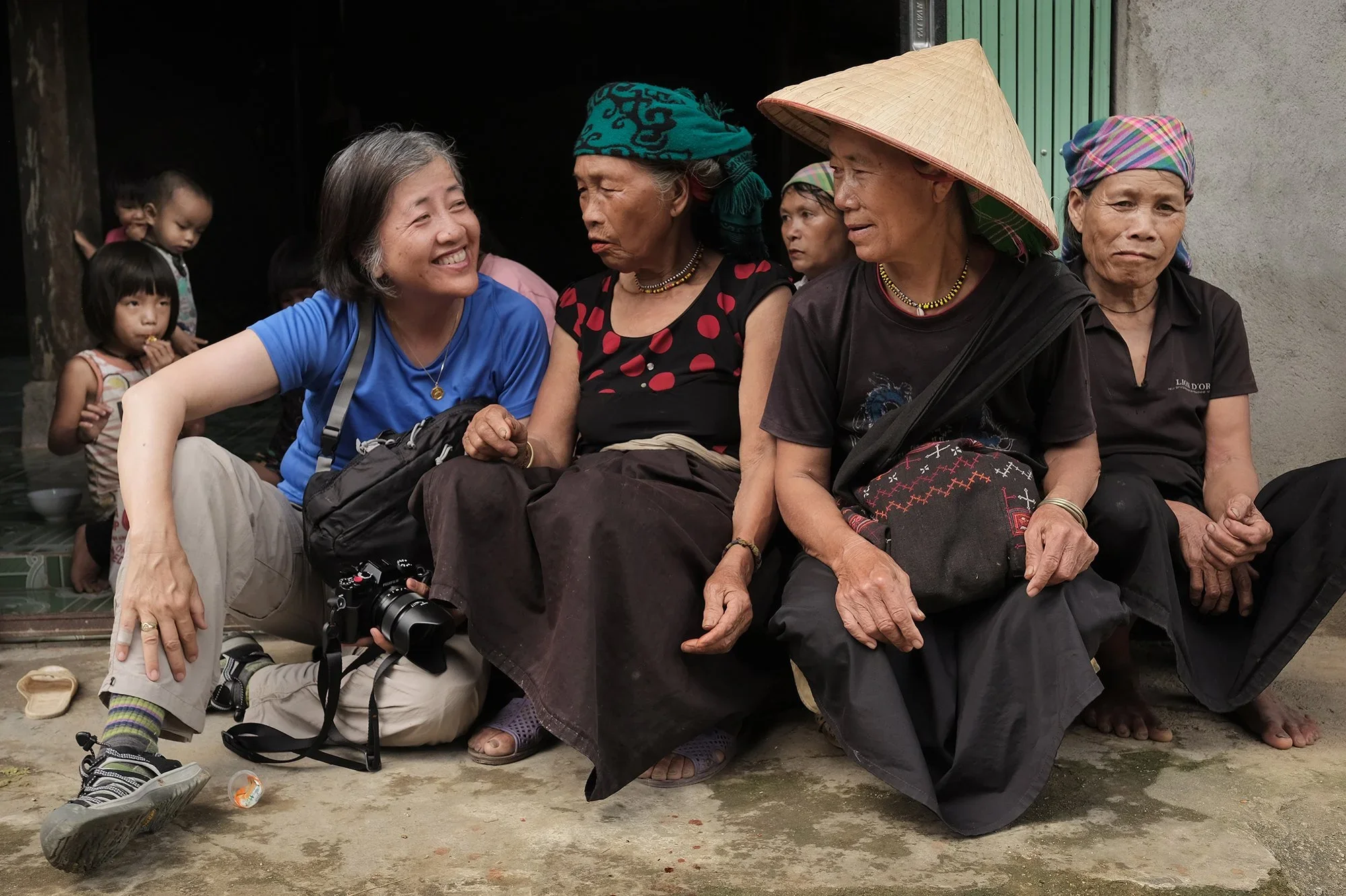Our Story
© David Hobby / X-Peditions
We love photography and we love traveling. We consider ourselves extremely fortunate to share our passions with kindred spirits from all over the world.
Our core values have always centered on a few basic principles: Develop a deeper understanding and respect for the culture and places we visit; push our creative and technical boundaries as photographers, artists and storytellers; and make meaningful connections with people we meet along the way.
We’ve organized and led photography trips to Hanoi under the X-Peditions banner since 2019. The X-Pedition Hanoi workshop was created by veteran photojournalist and internationally-recognized photography educator David Hobby whose mission was to help our travelers become more observant, thinking photographers.
While David retired after our fall 2025 workshop, the ethos he established carries on. We’re excited to continue our Hanoi experience with Ibarionex Perello, a photographer, writer and educator with more than 25 years experience in the photographic industry. You know Ibarionex as the producer and host of the long-running and acclaimed photography podcast: The Candid Frame.
Ibarionex is a respected workshop leader and the perfect person to step in to carry the X-Peditions banner. Ibarionex and David have the same passion for sharing their knowledge and helping others see the world differently through photography.
Our Approach
Our workshops focus on helping you to become a more complete photographer.
We’ll help you to see and understand light. And just as important, we’ll show you how to make your camera record light more closely to the way you experience it.
We’ll also push you to look for more layered compositions. Because this is how we move past the quick-read, eye-candy photos and start making images that can better hold a viewer’s attention.
But photography is about more than just being a good camera operator. So we also focus on developing better instincts and interpersonal skills.
Having good instincts can get you to the right place at the right time. We like to think of this process as building a sail to catch good luck. Interpersonal skills help you to better engage with your subjects, even across language barriers.
Together, these soft skills allow you to get into the right spots and then nurture the moments that lead to more meaningful photos.
A camera is just a black box that records an experience. So as photographers, our goal is always to create better experiences, which lead to better photos, which in turn help to lock in the memories of those experiences.
This is the positive feedback loop that will make you both a better traveler and a better photographer.
Working in this way can yield photos that are more intimate and meaningful. You tend to work in closer when shooting, rather then sniping people from a distance with a longer lens. You’re more engaged with your subjects, and your photos are more likely to reflect those personal connections.
Traveling Light
Our workshops are planned around the rhythm of the day (and night) to maximize and balance both personal and photographic experiences. We’ll always be out shooting around the edges of the day — and especially during golden light and blue hour — when the destinations are at their best.
When the morning sun gets higher, we’ll focus more on classes and editing. Or maybe even an early-afternoon nap, to save some gas for later. In the evenings we’ll shift into a more social mode, and keep the discussion going over a beer.
Speaking of cameras, X-Peditions are unique for another reason. The name itself is a nod to Fuijfilm’s X Series cameras. Small and lightweight, but with fantastic image quality, Fujifilm cameras are ideally suited for travel photography.
Do you have to shoot Fujifilm to come along? No, you don’t. But no matter what your camera brand, we will stress the benefits of traveling light. We want you to be more confident, and less encumbered.
Every possession is a burden. And at no time is that more true than when you are traveling. Working with less gear on the road is a blessing. It’s also more culturally respectful, and safer. Most important, a neck full of cameras should not be the first thing your subject notices about you. You always want to be seen as a person first, a photographer second.
